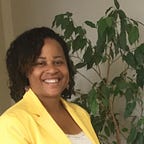Embracing Innovation
ChatGPT has been a heated topic across all sectors. Developed by Open AI, ChatGPT is an innovative software that can craft written products based on a given set of instructions. ChatGPT can even include errors as requested. Several colleagues of mine have wondered if there is cause for alarm, if the innovative tool will make teachers of writing obsolete. Teachers of writing and educators in general are also concerned that students will use the software to complete essays and other assignments. This fear of innovation replacing humans or creating an unfair advantage is not new. From the car to the television to our ubiquitous mobile phones, there has always been a sector of society that has feared innovation. Yet innovation is a key element to life-long learning and success.
In my early years of transitioning from graduate school, I received a job announcement for a position focused on assessment. I, like many other educators, had a negative view of teacher and student assessments. None of my graduate work had focused on assessment. From my perspective, my professional skills and interests were on the opposite end of the spectrum from standardized assessment. Yet, three different colleagues sent me the position. Leveraging former experiences of being open to new opportunities — after all, my journey to grad school was the result of a random interaction with the director of the Bay Area Writing Project — I decided that the repeated suggestions that I look into the position meant that the universe was opening up a space of innovation for me.
I emailed the contact person and, at the tail end of the hiring process, was invited to interview. Five interviews later, I was offered the position. Saying yes to a job that seemed so far out of my interests and career trajectory brought benefits that have lasted beyond the two years that I spent in the position. I was the on the design team to create the online writing assessments. Being on this team allowed me to understand the new technological tools that would support the move from pencil and paper to computer-assisted standardized testing as well as the conceptual thinking behind the assessment.
The insider position allowed me to support educators in preparing their teachers as well as understand how the tools of education that are most impactful are crafted. I now know that there are not corporate executives who create standardized tests — rather it is former teachers, tapped by researchers, who are given a prized opportunity to decide what should and should not be on a standardized test. I also learned the cultural implications of standardized tests designed with the whole country in mind and how that perspective wipes out the interests and assets of marginalized communities. All of these learnings have allowed me to expand access of this knowledge to educators who need it most. As I learn more about ChatGPT, I lean upon these learnings as well. Instead of feeling alarm and wondering if educators will be replaced as writing instructors, I recognize the benefits of embracing innovation and the limitations of any tool to replicate the cultural nuance of human interaction.
Embracing innovation early has proven time and time again to be a foundational component of success for those seeking to make an impact. Think of the founders of Apple, Microsoft, and Ford Motor Inc. and the inventors of the light bulb, computer processing chip, and focal lenses. All of these founders believed that innovation could change the trajectory of human existence. They were not wrong. Not only did these founders embrace innovation, but the time and effort they gave to see their vision come to life increased their sense success and contribution to society.
A more recent example of why embracing innovation increases success and joy is that of Rea Ann Silva. Rea Ann is a make-up artist whose mission is to ensure women of color looked radiant on television and movie screens. Like other make-up artists, in the early 2000s Rea Ann was trying to adjust to high-definition cameras and the increased detail the new cameras showed. The high-powered cameras now revealed every small clump of make-up on an actor’s face. While many make-up artists complained about the new cameras, Rea Ann began to embrace the new innovation and instead experimented with several different techniques to create the smoothness needed during filming touch-ups. Her commitment to finding a solution led to her small but impactful product, the Beauty Blender. With her product, Rea Ann created a multi-million dollar company and experienced a level of success she had always desired doing exactly what she loved — applying make-up. Rea Ann also contributed to women of color having a better make-up experience with the new HD cameras.
While ChatGPT may not be the innovation currently peaking in your sector, there is always innovation beckoning us toward a dynamic future.
What is that innovation in your life?
Is it something as small as being open to a new area of interests and learning?
Is it staying open to finding a solution to a new problem?
How might embracing innovation allow you to contribute to society in ways that are meaningful to you?
Whatever the innovation, you have a set of talents and tools to create an impact.
Embracing innovation is sure to bring success and impact beyond your imagination.
Dr. Lanette Jimerson is a writer, educator and scholar. She helps equity-minded leaders expand their impact and craft a career trajectory that centers their professional and financial needs. Book a conversation to learn how she supports leaders in transition. Check out 12 Tips to Transitioning Careers to get started on your journey.
